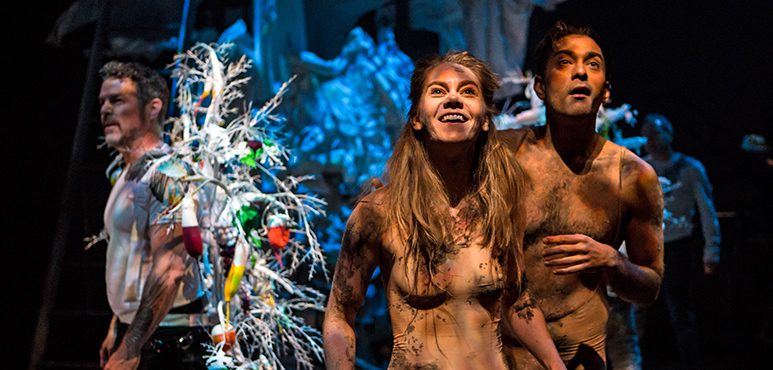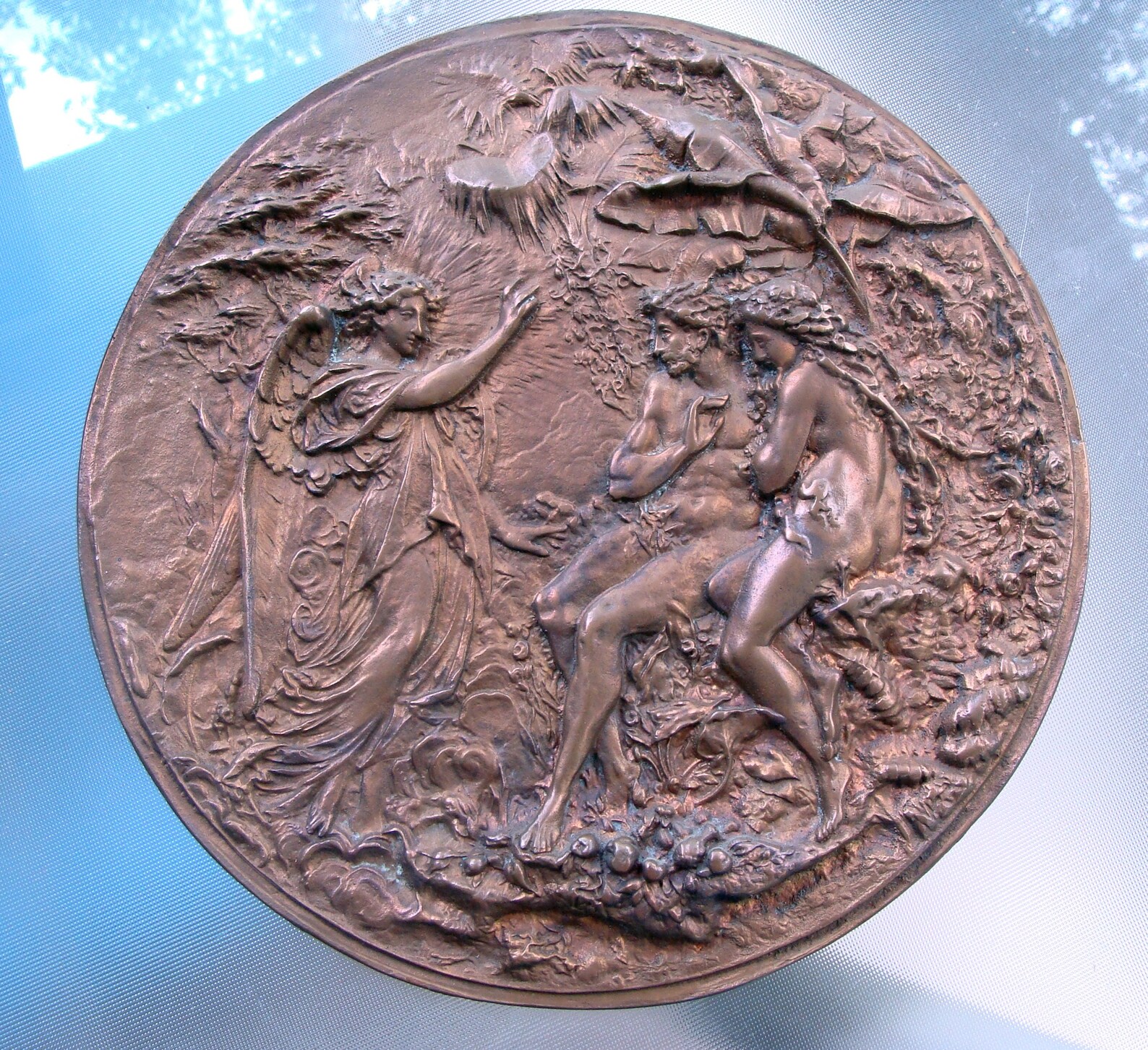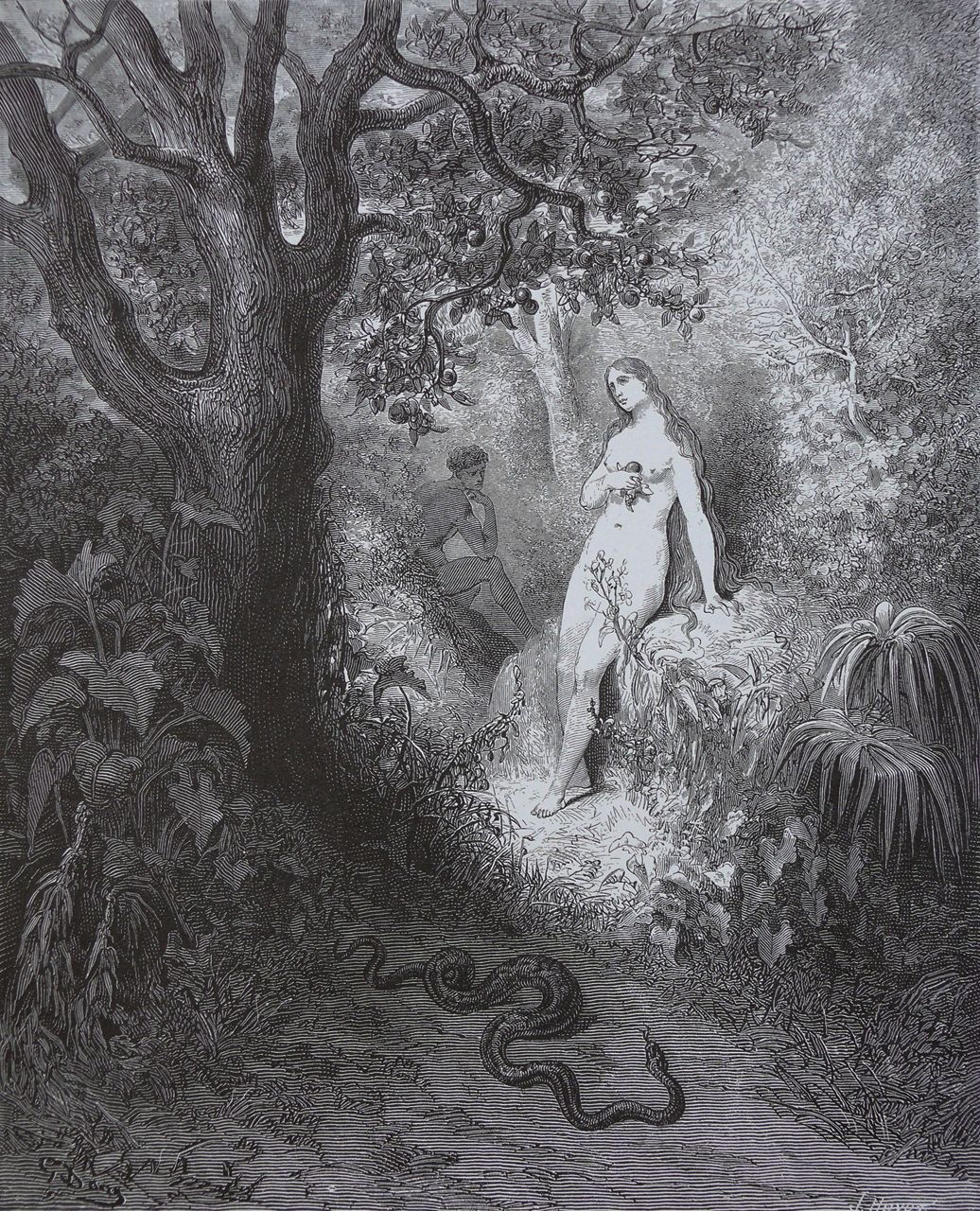

While she was an exceptional woman before the Fall, Eve becomes inferior to Adam after the Fall Milton confirms that most women should be inferior to men. Eve offers to take God.s punishment entirely upon herself because she accepts that the Fall occurred because of her mistake, and her ultimate punishment involves being placed permanently beneath Adam in the hierarchy.

God sends his Son to pass judgment upon the human pair, and the tragic hero.s decline begins. In addition to dooming herself, Eve tempts Adam to disobey God's command, and once he eats, the Fall is complete. Her mistake occurs when she considers Satan's argument, finally giving in to her ambitious desire to become like a god. As Aristotle states, the tragic hero's misfortunes must be a result of an error of judgment rather than a flaw in character, and Eve, though ambitious, remains a perfect being before the Fall. These traits allow Milton's audience to connect to Eve as a heroic character, thus eliciting pity when she suffers misfortune. As a good character with high standing, Eve also demonstrates human appetites, including curiosity, desire, and ambition.

Milton portrays Eve as an exceptional woman, providing her with a status equal to that of a monarch in Paradise. To do what God expresly hath forbid, Not then mistrust, but tender love enjoynes, That I should mind thee oft, and mind thou me. Using Aristotle's Poetics to define "tragedy" and "tragic hero" this thesis illustrates that Eve is the only character that fits the definition. One of these nuances involved portraying Eve as the tragic hero of his epic. Disregarding the influence of biblical works and other relevant elements in accord with Milton’s imagination, the issue of the opposed thrones between God and Satan plays a pivotal role in enriching the epic.ĭOI: 10.22161/ijels.3.6.John Milton's life experiences and extensive education allowed him to write a complex epic poem with many nuances. Dreams symbolize the space of the universe containing positive and negative power. Impressively, images of evilness and goodness both appear in Eve and Adam’s dreams reflecting the tug of war between justice and injustice. Furthermore, Satan incarnates himself as animals to induce Eve to rebel against doctrines and orders made by God. Due to the hatred out of jealously, dissemination with malevolent rumor against God becomes Satan’s measure to persuade falling angels that they should possess equal status with God instead of being inferior to God. Howbeit, Satan not only embraces the image of the representative of evilness but plays the embodiment of the root of human crime. In Milton’s elaboration of Paradise Lost, God the father, the incarnation of morality represents supreme power in universe. Dreams regarded as fields for Satan to induce Eve make Satan temporarily win the battle however, God turns the tables with little effort to subjugate Satan by appearing in Adam and Eve’s dreams. In this extract, Satan and Eve are diametrically opposed. Keywords: Adam and Eve, Dream Interpretation, John Milton, Paradise Lost, The Tug of WarĪbstract: The paper aims to explore how the opposing thrones between God and Satan spread out in dreams in John Milton’s Paradise Lost. Analyse the ways in which Milton portrays Satan and Eve in lines 444-472 (Paradise Lost Book IX). Vol-3,Issue-6,November - December 2018 Author: Szu-Han Wang


 0 kommentar(er)
0 kommentar(er)
